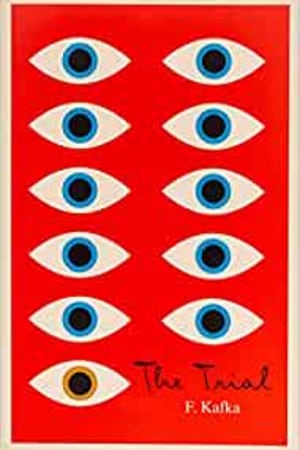World Literature
- Publisher : Schocken
- Published : 25 May 1999
- Pages : 304
- ISBN-10 : 0805209999
- ISBN-13 : 9780805209990
- Language : English
The Trial: A New Translation Based on the Restored Text (The Schocken Kafka Library), Book Cover May Vary
Written in 1914, The Trial is one of the most important novels of the twentieth century: the terrifying tale of Josef K., a respectable bank officer who is suddenly and inexplicably arrested and must defend himself against a charge about which he can get no information. Whether read as an existential tale, a parable, or a prophecy of the excesses of modern bureaucracy wedded to the madness of totalitarianism, Kafka's nightmare has resonated with chilling truth for generations of readers. This new edition is based upon the work of an international team of experts who have restored the text, the sequence of chapters, and their division to create a version that is as close as possible to the way the author left it.
In his brilliant translation, Breon Mitchell masterfully reproduces the distinctive poetics of Kafka's prose, revealing a novel that is as full of energy and power as it was when it was first written.
In his brilliant translation, Breon Mitchell masterfully reproduces the distinctive poetics of Kafka's prose, revealing a novel that is as full of energy and power as it was when it was first written.
Editorial Reviews
"Kafka's 'legalese' is alchemically fused with a prose of great verve and intense readability."
--James Rolleston, professor of Germanic languages and literatures, Duke University
"Breon Mitchell's translation is an accomplishment of the highest order that will honor Kafka far into the twenty-first century."
--Walter Abish, author of How German Is It
--James Rolleston, professor of Germanic languages and literatures, Duke University
"Breon Mitchell's translation is an accomplishment of the highest order that will honor Kafka far into the twenty-first century."
--Walter Abish, author of How German Is It
Readers Top Reviews
D. J. LeedhamSamStre
This is one of the great, very influential narratives of 20th Century Western literature. Read it many times. Existential anxt may have come and gone. But Kafka's imagery lives on. This is one instance where asking if the writing is poor or great is meaningless. Is there violence? If bang bang your dead violence: No. If deeply alienating psychic violence: Yes in aces and spades. Is there sexual content? Soft porn bodice ripper? No - Existential torment imagery? Yes How is it narrated? From inside a deep echo chamber by a psychic spider trapped in a glass jar with smooth sides.
Richard AvilaKindle
If you want to read a book that makes you feel as if you are going crazy, then this is the one. It is a brilliant idea to have a respectable person accused of an undisclosed crime by the authorities and then never have the accusation fleshed out and decided. This is a book for literary scholars only.
Barbara M Haluapo
Some say Kafka is the best author of the twentieth century. I agree with that. For someone to express that kind of suffering, of the kind he is talking about, they would have had to experience it. And I think that only the people who had also experienced that cruel, back stabbing,sly, deliberateness, leaving the victim in limbo but certain of a dark end, even know what he is describing. .His expose' on just how much evil people can visit on another has a depth no one could ever express. But Franz Joseph Kafka comes so very close to doing just that..
David Kauder
Fascinating twisted story of a bank executive that gets accused of a crime........but what crime? I now can understand where the term Kafkaesque originates.
D.BeyerJoshuaDavid K
Books I actually enjoyed reading reference Kafka...so I picked "The Trial" to understand why. This is hardly a compelling book to read. Who knows how much smoother it would've read had Kafka lived to finish it. That said, the entire novel felt oppressive, creating guilt where there is none; a trial and its ensemble of guards, examining magistrates, lawyers, etc.; the accused and the "power" of doormen, the secrecy and judgment of a random moment... Admirably, Josef K., Kafka's protagonist, managed not to succumb to groveling as did the merchant...but in the end, he still dies, "like a dog." At the very least, I now have some basis for understanding any future reading that may mention Kafka or Kafkaesque.


